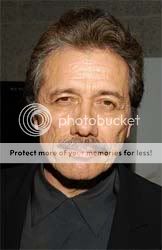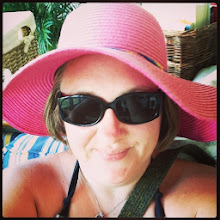I suppose I have always taken a feminine approach, even to the most dire and brutal situations. The only male character I can recall having had any kind of success with as a writer was the detective in my to-be-published in the March edition of eMuse short story, "Black Velveteen." The thing is, the detective in that story came off somewhat cliche to me, even as the writer... the dime-store bin detective with an angry ex-wife, estranged child, overzealous longing for truth and justice and a voice like Edward James Olmos. In fact, the character himself reminded me very much of Edward Olmos (ironic in a Blade Runner sense,) and that is one of the reasons I stuck by him as a character. Edward James Olmos tends to play gruff, serious characters who stand behind their moral principles no matter how bad things get.
Do you have these types of difficulties as a writer? Do you feel more comfortable creating heroines or heroes? At present I have two unfinished pieces in which the main character is a male. Both of them are less than six months old, but snagged by my present hang up over the proper portrayal of men. Tell me about your experiences, your successes and failures with characters of the opposite and same sex. Do you feel as a writer that this is completely gender related, and is there a way around it?
Now, without further ado, here is a small excerpt from my upcoming eMuse publication:
Black Velveteen
“Cybs.” Velvet’s voice wavered on that one word. “Man is not happy unless he labels everything around him. Labels give him power over things, and without that power. . .” She looked down at her hands. “Without that power he would not be Man. She would not be woman. I would not be as you call me, Cyb.”
The corner of Hank’s tightened mouth twitched toward expression, but he held back his admiration of her observation. He didn’t want her to get the wrong idea, to try and use his appreciation for her cleverness against him.
“Be that as it may,” he began, “your lack of understanding for human reason and emotion would make it difficult for you to understand violence and its implications if you had not been programmed to.”
“I am not programmed to act or react with violence. That is correct.”
“And yet you murdered a child,” Hank reminded her. “A little girl no more than seven years old.”
Hank’s voice hardened, he heard it himself. He had a daughter once—still really. Her name was Keyana and she had just graduated from college with a Bachelor’s in Philosophy. She hadn’t spoken to Hank in more than seven years because according to her mother he was a bad father and an even worse husband. His ex-wife said he didn’t care, but then he’d let so few people get close enough to tell the truth. He cared. In fact, having a daughter had fine-tuned his misery when it came to cases such as this.








